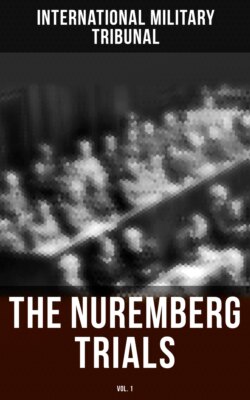Читать книгу The Nuremberg Trials (Vol.1) - International Military Tribunal - Страница 49
На сайте Литреса книга снята с продажи.
(A) MURDER, EXTERMINATION, ENSLAVEMENT, DEPORTATION,
AND OTHER INHUMANE ACTS COMMITTED
AGAINST CIVILIAN POPULATIONS BEFORE AND DURING
THE WAR
ОглавлениеFor the purposes set out above, the defendants adopted a policy of persecution, repression, and extermination of all civilians in Germany who were, or who were believed to be, or who were believed likely to become, hostile to the Nazi Government and the common plan or conspiracy described in Count One. They imprisoned such persons without judicial process, holding them in “protective custody” and concentration camps, and subjected them to persecution, degradation, despoilment, enslavement, torture, and murder.
Special courts were established to carry out the will of the conspirators; favored branches or agencies of the State and Party were permitted to operate outside the range even of nazified law and to crush all tendencies and elements which were considered “undesirable”. The various concentration camps included Buchenwald, which was established in 1933, and Dachau, which was established in 1934. At these and other camps the civilians were put to slave labor, and murdered and ill-treated by divers means, including those set out in Count Three above, and these acts and policies were continued and extended to the occupied countries after 1 September 1939, and until 8 May 1945.
